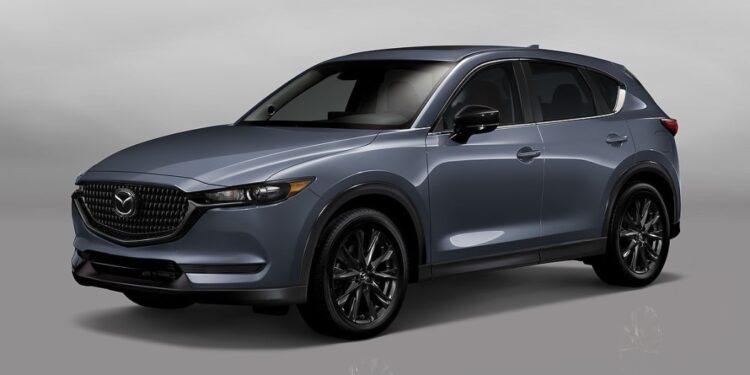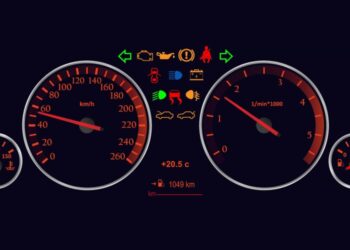When buying your first car, you might spend hours and hours poring over different models, makes, colors, and even worse, dealers. Knowing what to expect and do can make all the difference in buying a good car and also prevent you from being defrauded. Whether you are planning to buy a brand new, used car, you need to be sure and safe. It does not matter whom you are buying from, someone you know, local car dealerships or a complete stranger, it’s best to know the things you should check and be wary of when buying a car in Kenya.
Here are the factors to consider when buying a car in Kenya.
1. New or used
Determine whether you want a new or used car before you start shopping. They are both advantages and disadvantages to either choice, so depending on your needs as well as your budget, consider all the aspects and then settle for one. Affordable price is one of the main advantages of purchasing a second-hand car. It’s important to check the ownership history of the used car, stolen or not and if repair is needed.
2. Imported or locally bought
Another dilemma you have to solve is whether you want to buy the car locally or import it from overseas. There are numerous places you can buy used cars in Kenya and even though they might be a little bit more expensive than imported cars, you’ll get your hands on it immediately. You have to be very careful when buying a used car in Kenya, because you might be conned into buying a stolen car or one that is in very bad shape and needs multiple repairs. Imported cars on the other hand, usually have an upper hand because they are cheaper, even with the added taxes. However, it could be frustrating to wait for months for the car to get cleared through the ports.
3. Spare parts availability
Truth be told, Kenyan roads are not the best and will take a toll on your car after a while. Though the condition of the Kenyan roads have improved a lot compared to the past decades but they are nothing compared to the roads in the developed countries. The rural tracks are mostly unpaved and even a good number of city streets have potholes. Bumpy rides will damage several components of your car will deteriorate even faster.
It’s necessary to choose a car model that has spare parts available at local car shops and garages. There’s no reason to have a car lying in the garage simply because you couldn’t find the right spare parts. Shipping pair parts could be very expensive and it may take a while before you repair it. In that case, going with Toyota will be the safest option. You can also choose the popular models of Nissan, Volkswagen, Mazda, or Subaru.
4. Your budget
Determine how much money you have and how much you need to borrow. How much do you really want to spend on a car? A good deal should be one you can easily pay off over a short period of time. The amount of money you borrow could depend on the type of car you want, so decide on your make and model before you shop for a loan. However, don’t get carried away by the excitement because taking a loan you are unable to pay is risky. When it comes to second-hand cars, the budget is actually not about how much you can spend but what should be the right price for a car that can meet your needs.
Visiting several car dealers and comparing the prices for your desired model is a good idea. Plenty of second-hand car dealers sell their products through websites. So, an online search may produce fruitful results with the possibility of scoring a car at a price cheaper than your expectation. Also, do be afraid of bargaining given the age and other conditions of the car. You can score a lower price if you have a good negotiation skill.
5. Your needs
It’s extremely beneficial for you to get a car that meets your personal needs. Are you looking for a personal, family, leisure, or business car? An efficient engine consumes less fuel and impacts positively on buyers who value a vehicle that consumes fuel sparingly. It’s therefore important to match your car purchase with your personal needs or rather interests.
6. Inspect the car thoroughly
A car is a big investment and you should not be sloppy when making inspection, especially when you’re buying a used car in Kenya. Whether you are dealing with the car owner or a car dealer, don’t just take every word coming out of the seller’s mouth as truth. The procedure of buying a used car in Kenya is longer compared to getting a new one. Ensure you know exactly what to check, or better yet, hire a trusted mechanic to give the car a thorough inspection so you know the exact condition it is in.
The mechanic will check the most important areas of the car. These parts are; exterior part of the car, tire pressure and alignment, interior part of the car, engine and transmission, steering and suspension, and will also perform routine brake check. A mechanic will also give you an estimated worth of that car so you’re not conned. Some companies also provide professional evaluation services. Their experts will spot the technical issues and give you an estimated figure of the car’s worth. Buying a new car in Kenya could be easier because you don’t need to check for anything.
It’s advisable to take the car for a test drive to ensure you get exactly what you desire. For every 1,000 miles removed from the odometer, it increases the value of the vehicle substantially and is a highly illegal practice. It is worth checking for signs of tampering. Examine the dashboard for worn screws. Look for chips made by stones across the front of the bonnet, grille, and bumper, these can be an indication of many motorway journeys. Most cars average around 10,000 miles per year, so check the mileage on the clock roughly ties in with the age and appearance of the car.
7. Check reviews of the car
Checking reviews of the car model you are intending to buy can help you make a better decision since other car users usually give insights about different vehicles. You can check the reviews on various car dealer websites, or on independent review sites, and you will be able to make a wise decision when buying a car.
8. Check the paperwork
This is the next thing you should not be sloppy with. Be thorough with the paperwork to make sure that you are legally clear to purchase that car. If the seller is an individual or a private organization, then you should get proof of ownership, which is the original logbook. You should also conduct an online search of the car registration as well as full information about the car from NTSA. You can check whether the previous owner has paid the due fees in full and has not forged the chassis or the engine numbers.
9. Documents and payments
Follow the right procedure when creating all the necessary documents and clearing the payments. Make sure that the Sales Agreement Contract includes the details and signatures of you, the selling party, and a third-party witness. Also, the seller has to initiate an online transfer of ownership by using the NTSA TIMS portal. You, as the buyer, have to pay the transfer fees and purchase tax through the TIMS website. Also, clear the payment through bank transfer or a cheque. You will get a receipt for using such a transaction medium, which can be used as a proof of payment.
10. Insurance policy
According to the traffic laws in Kenya, it’s a must for you to get your car insured before driving it on Kenyan roads. There are several renowned insurance companies in Kenya that provide auto insurance policies. You should compare the policies and choose one that fits your requirements and budget. Many people think of saving money by not opting for a policy, which is a big mistake. The costs of liability and collisions are likely to be double when you are buying a used car in Kenya instead of a brand new model. An insurance will save you from being in debt in case the car is involved in an accident.
Bottom line
Buying a car in Kenya doesn’t have to be hard, but you have to be careful because you will be investing a lot in it. Consider all your options, in all aspects before you finally make a deal. Remember, there are risks associated with buying second-hand, so it’s important to take your time, and not rush into anything, even if you’re not spending a fortune.


































































































































































































